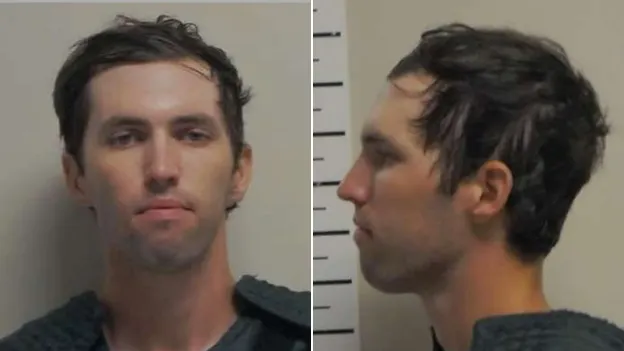Utah authorities are taking no chances with Tyler Robinson, the 22-year-old accused of assassinating conservative commentator Charlie Kirk.
Robinson is being held under extraordinary jail measures designed not just to stop him from harming himself, but also to prevent any potential foul play that could spark even more controversy around this already high-profile case.
He has been placed on what officials call “special watch,” a system of strict monitoring that ensures every second of his movements is tracked.
Wearing a suicide prevention vest, Robinson made his first brief appearance in court through a video link on Tuesday afternoon.
Lessons from the Epstein Case
Prison experts warn that Robinson’s case carries echoes of the infamous Jeffrey Epstein scandal, where lapses in supervision fueled years of conspiracy theories.
“If I were responsible for this facility, I’d be extremely cautious to avoid a repeat of what happened with Epstein,” said Lenard Vare, a veteran in prison management.
Officials at Utah County Jail remain tight-lipped about Robinson’s exact conditions, but experts say inmates in his situation are kept under round-the-clock surveillance.
Lights in the cell never go out, allowing officers to monitor him constantly.
“Turning the lights off simply isn’t an option,” explained Joseph Gunja, a former Federal Bureau of Prisons official.
Life Inside a Special Watch Cell
Robinson’s world is stripped bare of anything that could pose a risk. Bedsheets, pillows, or even sporks are not allowed.
Instead, inmates like him wear thick, tear-resistant “turtle suits” to prevent self-harm.
The walls are padded, fixtures are tamper-proof, and even toilets are specially designed to remove any possibility of misuse.
Meals are slid through slots on soft trays, pens and pencils are banned, and some jails even ration toilet paper to prevent it from being used dangerously.
“People have even tried swallowing their socks before,” Vare pointed out, underlining how extreme these precautions must be.
Mental Strain and Hidden Risks
While these measures are meant to save lives, experts argue they can also make conditions mentally unbearable.
Constant light, lack of privacy, and the stress of being watched every second can take a toll.
Ironically, inmates often avoid telling evaluators that they feel suicidal—because they know that doing so means being placed under these harsh restrictions.
“These first days are the most severe for Robinson. The shock of it all can be overwhelming,” Vare said.
Why Authorities Are So Cautious
The stakes could not be higher.
Charlie Kirk’s assassination has drawn international attention, and any harm to Robinson before trial could unleash chaos and conspiracy theories on a massive scale.
Authorities fear that, just like with Epstein, the narrative could spiral into endless speculation if Robinson were to die in custody.
That’s why Robinson is likely under constant video monitoring, with officers swapped out seamlessly so he’s never left unwatched—not even for a moment.
“The goal is simple,” Vare emphasized.
“Don’t take your eyes off him, not even for a few seconds.”
The Bigger Picture of the Case
Robinson was arrested the day after the September 10 shooting, when a family member recognized him from surveillance images.
Investigators say he fired a single rifle shot from a rooftop during Kirk’s speech at Utah Valley University, then fled before eventually being captured.
Authorities are still piecing together his motive.
Some point to extremist ideology, while others speculate a personal connection linked to his roommate and possible romantic partner, who is transitioning.
For now, Robinson is not cooperating with investigators, according to Utah’s governor.
What Comes Next
Robinson remains behind bars without bail, facing charges that could carry the death penalty if he’s convicted.
A long legal battle awaits, and experts predict he could spend decades in prison before any ultimate sentence is carried out.
But until then, the biggest challenge for Utah authorities is keeping him alive.
Any slip—whether through self-harm or foul play—would ignite a firestorm of distrust, theories, and anger.
As Vare put it, “In a case this notorious, the last thing anybody needs is another tragedy.”
